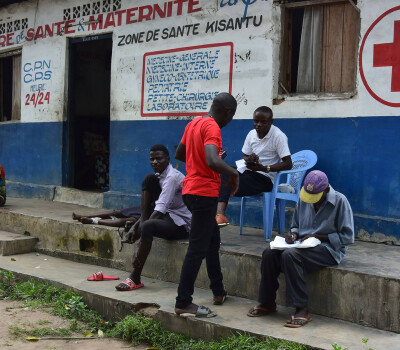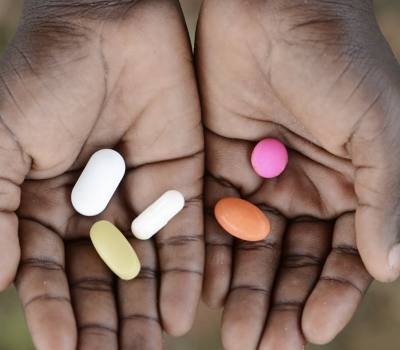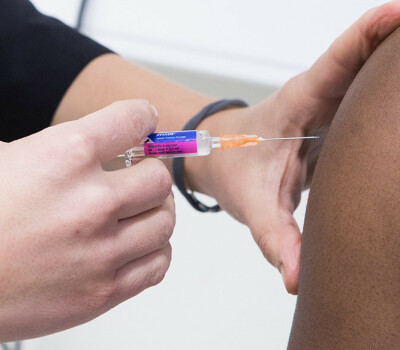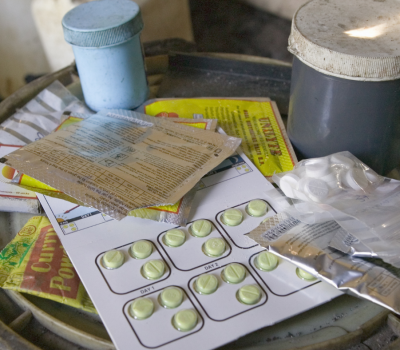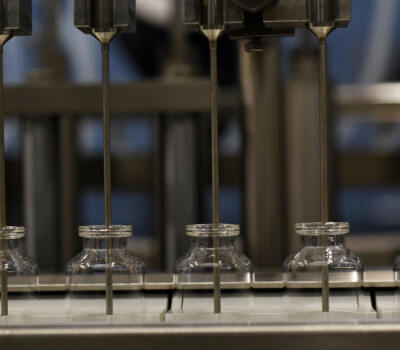ITM researcher warns: antibiotic resistance is a creeping pandemic

Every year, more than 35,000 people in Europe die from infections caused by bacteria that are insensitive to antibiotics, as estimated by the European health service ECDC. Liselotte Hardy, Tropical Bacteriology researcher at ITM, warns against the unnecessary use of antibiotics.
What is the danger of antibiotic resistance?
"The main risk is that we may eventually run out of antibiotics that can fight normal infections. The number of different antibiotics on the market is very small: not many are being developed and new antibiotics are not being tested. In this way, bacteria become resistant. Even against spare antibiotics, which are considered a last resort. Ultimately, you could die from a banal cold in that case."
How does resistance actually work?
"The bacteria become insensitive to antibiotics. It is sort of a genetic change in the bacteria. If a bacterium never comes into contact with an antibiotic, it is sensitive and a cure is likely to work. But with antibiotic use, the bacterium starts to fight back and undergoes changes. This eventually increases their survival rate, which then becomes the standard. Those bacteria survive and start reproducing.
"Resistance to antibiotics occurs partly through prolonged or more frequent use of the same type of antibiotic. Resistant bacteria can also develop from misuse, say when antibiotics are used when they are not actually needed."
Is there an alternative?
"There are studies on that. One avenue that has been investigated for years is the use of bacteriophages (viruses that can kill bacteria, AB). These viruses have been developed specifically for a certain type of bacteria. This is an interesting route, but it is not that simple. The good thing about antibiotics is that they work against relatively many bacterial infections. A bacteriophage only works against one type of bacteria; it is personalised medicine. In Eastern Europe, for example, this is used for burn injuries. In Belgium, this method has not been used much yet."
Scientists fear that antibiotic resistance will continue to grow explosively.
"The numbers have always been there. We call antibiotic resistance a creeping pandemic. Ever since antibiotics came into use, there have been warnings against resistance. There are lots of causes. One of those is that antibiotics are prescribed too much and too carelessly.
"In addition, antibiotics are also used in plant breeding and livestock farming. Animals are often given antibiotics to stay healthier and keep growing. Their residues end up in our water and meat. Thus, we also ingest antibiotics inadvertently."
Could patients be more mindful of their use?
"I think this comes down to the GP anyway. There are many people who actually do everything the GP says, which in itself is smart. GPs have a big role to play here. We call this antibiotics stewardship: they serve as role models for patients and should explain the various options. In some cases, it may be a good idea to give antibiotics. But in many cases, you can also wait and see if your own immune system is strong enough.
"If you are prescribed a course of antibiotics, it is important to always finish the whole course. You get 20 pills, but you might feel better after 10. However, the bacteria are still in your body. If they no longer get attacked by antibiotics, they will reproduce. It is important to take the cure to the end and make sure everything is gone. But the very best thing is to avoid taking antibiotics if you don't need to."
Source: Onderzoeker Tropisch Instituut waarschuwt: ‘Antibioticaresistentie is een sluipende pandemie’ (De Morgen, 18 November 2022)
Spread the word! Share this story on
